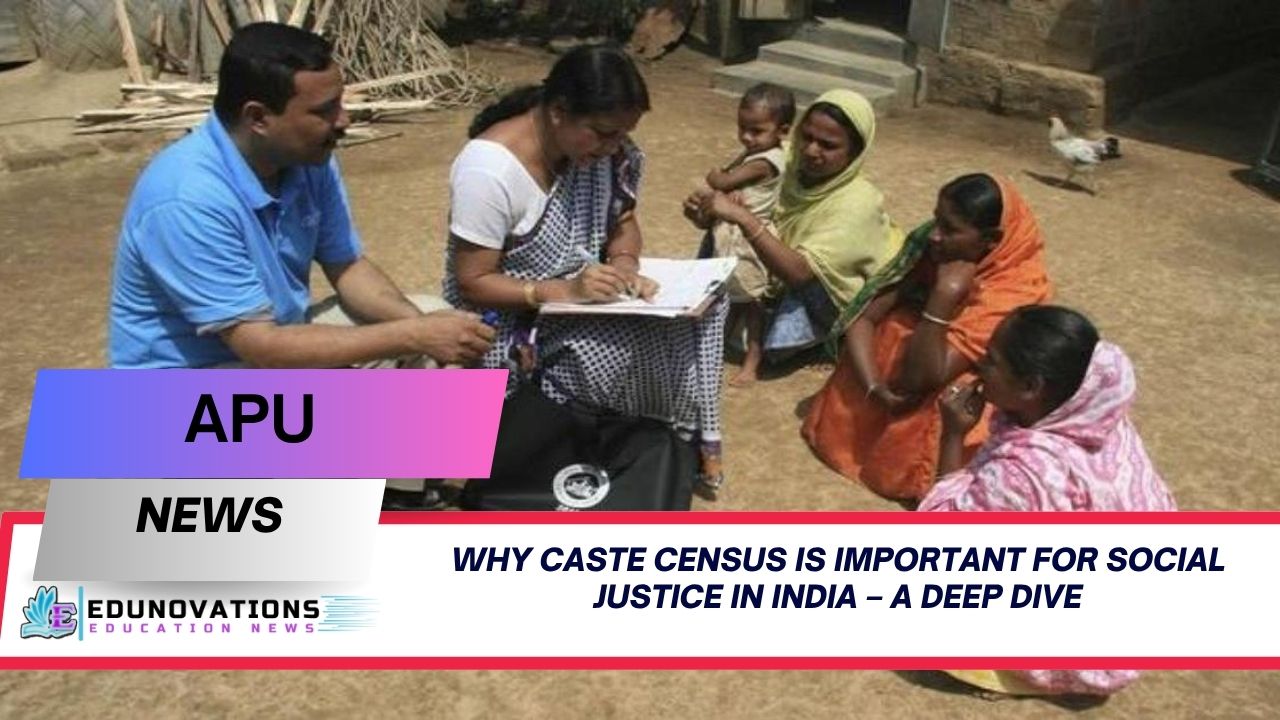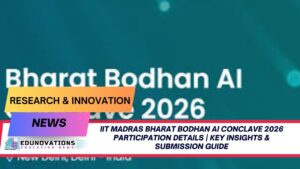Discover why caste census is important for social justice in India and how it can transform public policy, equitable resource allocation, and inclusive governance.
In a society as complex and stratified as India, why caste census is important for social justice in India is no longer just a political question—it is a critical public policy imperative. The conversation around caste-based enumeration has gained momentum in recent years, with social scientists, policy experts, and civil society organizations emphasizing its potential to serve as a transformative tool for inclusive governance.
Azim Premji University recently echoed these sentiments in its compelling analysis, pointing out the role of data in dismantling systemic inequities and advancing social equity. This article explores the layers behind the caste census debate, focusing on how it influences access, representation, and justice.
The Historical Vacuum of Caste Data
India’s last comprehensive caste-based census took place in 1931. Since then, the absence of disaggregated data has created blind spots in policy formulation. Despite the constitutional commitment to equality, policymakers have largely relied on outdated or incomplete data to draft affirmative action plans and welfare schemes.
Experts argue that the benefits of conducting caste-based census in India 2025 go beyond numerical representation. “Policies cannot be just in the absence of empirical evidence,” says Professor Satish Deshpande, a renowned sociologist. “Without knowing how caste impacts socio-economic parameters, we are legislating in the dark.”
Toppers Use Mind Maps to score more than 95%
NCERT Class 11th Commerce Mind Maps
Add to cartOriginal price was: ₹999.00.₹199.00Current price is: ₹199.00.NCERT Class 12th Chemistry Mind Maps
Add to cartOriginal price was: ₹199.00.₹75.00Current price is: ₹75.00.NCERT Class 12th Commerce Mind Maps
Add to cartOriginal price was: ₹999.00.₹199.00Current price is: ₹199.00.NCERT Class 12th Science Mind Maps
Add to cartOriginal price was: ₹999.00.₹199.00Current price is: ₹199.00.NCERT Mind Maps For Class 10th
Add to cartOriginal price was: ₹999.00.₹199.00Current price is: ₹199.00.
Purchase Today
Modern Challenges Need Modern Data
Economic indicators alone cannot capture the lived experiences of caste-based marginalization. With changing migration patterns, urban-rural divides, and evolving socio-political landscapes, the caste question needs a fresh lens—one that is both analytical and responsive.
The central argument lies in the need for targeted interventions. From scholarship distribution to public health to employment guarantees, effective governance needs to know how caste census supports equitable resource distribution. For instance:
- In education, backward caste students often lack access to competitive coaching.
- In healthcare, many Dalit communities remain underserved due to systemic neglect.
- In employment, OBC and SC/ST representation in corporate sectors is disproportionately low.
Without caste data, these gaps remain anecdotal, unquantified, and ultimately unaddressed.
Public Policy Without Data Is Policy Without Direction
India’s affirmative action policies—reservations in education, employment, and politics—require a robust, dynamic understanding of beneficiary groups. But in the absence of a detailed caste census, even estimating eligibility becomes contentious.
The caste census and its impact on public policy in India is evident in sectors like:
- Education: Allocation of scholarships and fellowships can be optimized with accurate caste statistics.
- Healthcare: Targeted health drives for marginalized communities can be designed.
- Employment: Reservation policies and diversity hiring metrics can become data-driven.
You can explore relevant policy-based learning at Edunovations NCERT Courses or prepare for competitive exams with updated Current Affairs.
Opposition and Concerns
Despite widespread academic and grassroots support, opposition to caste census exists. Critics argue it may reinforce caste identities, exacerbate divisions, and burden administrative processes. Some also worry about the politicization of data.
However, proponents counter this by suggesting that caste identity already influences Indian society, albeit in the shadows. Bringing it into the policy spotlight through transparent data collection could democratize opportunities rather than divide.
Legal and Constitutional Standing
There is no constitutional bar against collecting caste data. In fact, Article 15 and Article 16 of the Constitution provide for affirmative actions in favor of disadvantaged communities. Without a contemporary understanding of caste-based deprivation, these articles risk becoming ceremonial.
The Role of Civil Society and Academia
Think tanks, academic institutions, and social organizations have consistently advocated for caste-based enumeration. The recent report by Azim Premji University is only the latest in a long line of scholarly appeals.
Workshops, public lectures, and campaigns are being conducted to raise awareness. Additionally, learning tools such as NCERT Notes, MCQs, and Syllabus Overviews now include modules focused on caste equity and policy.
Caste Census and the Economy
A well-executed caste census can reshape budgetary allocations. For example:
- Government schemes like PM Awas Yojana or MGNREGA could recalibrate targets.
- Entrepreneurship support for SC/ST groups could be improved.
- Financial inclusion initiatives like Jan Dhan accounts can better serve marginalized populations.
It reinforces the importance of caste data for inclusive governance in India, ensuring that India’s economic progress doesn’t bypass its most disadvantaged citizens.
Voices of the Experts
Several eminent personalities have lent their voices in favor of the caste census. Notably, Justice D.Y. Chandrachud, the current Chief Justice of India, has spoken about the judiciary’s role in ensuring social justice.
In an academic paper published earlier this year, he noted, “Data empowers democracy. It is not merely about counting people, but about making people count.”
Way Forward: What Needs to Be Done
To execute a caste census effectively, the following steps are critical:
- Establish a bipartisan task force to oversee the process.
- Develop community-led data collection protocols.
- Ensure data privacy and anonymity.
- Integrate caste census data with other national surveys like NSSO and NFHS.
- Make findings publicly accessible to ensure transparency.
Platforms such as Edunovations Videos and Download Free PDFs are great resources for students and scholars to understand these processes in depth.
Empowering the Next Generation
Caste data isn’t just for today’s policy—it’s for tomorrow’s planners, educators, and citizens. By enabling a fact-based understanding of social inequalities, the caste census can drive long-term structural reform.
And if you’re building educational platforms or school websites to raise awareness, Mart India Infotech offers custom solutions tailored to your goals.
Conclusion
The time has come to break the silence around caste and reorient governance towards justice and inclusion. Knowing why caste census is important for social justice in India is the first step; implementing it is the next. Let data be the bedrock of dignity, equity, and opportunity in modern India.
📌 FAQs
- Why caste census is important for social justice in India?
It provides data essential for equitable policy-making and addressing systemic caste-based inequalities. - What are the benefits of conducting caste-based census in India 2025?
Accurate data will help target welfare schemes, reservations, and resources effectively. - How does caste census impact public policy in India?
It ensures data-driven decisions in education, employment, health, and social welfare sectors. - Can caste census help in resource distribution?
Yes, by identifying underrepresented and marginalized communities, policies can be more inclusive. - Is there any constitutional issue in conducting caste census?
No. The Indian Constitution supports affirmative actions, and accurate data strengthens these provisions. - What steps are needed for a successful caste census?
Strong oversight, community participation, data privacy safeguards, and transparency. - What is the difference between socio-economic census and caste census?
Socio-economic censuses focus on income and employment, while caste census tracks social stratification. - Who supports the caste census in India?
Academicians, sociologists, and civil society groups have advocated strongly for it. - How can students learn more about caste-based policy issues?
They can refer to curated NCERT Notes and Videos. - What role does data play in inclusive governance?
It reveals gaps in opportunity and helps design policies that benefit all, not just the privileged.














